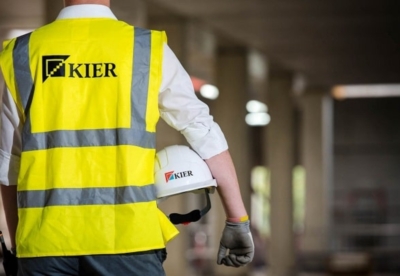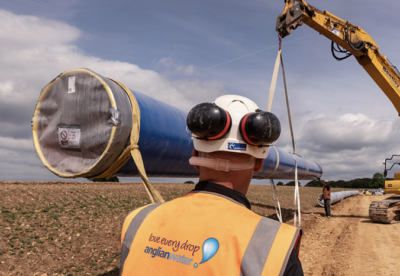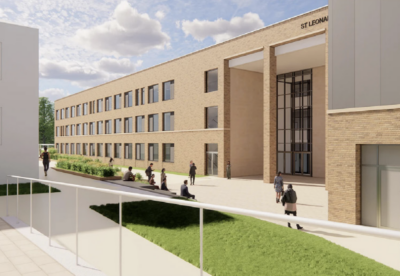Over 2,000 cubic metres of concrete have been poured to create the first two 90 metre viaduct deck structures, with construction of two further deck sections well advanced.
The concrete was delivered and poured during night-time operations to minimise impacts on local roads. In total over 11,000 cubic metres of concrete will need to be poured to complete the whole viaduct.
A total of 26 piers, between five and six metres tall, have also been built to carry the viaduct, with 4 huge steel tripods currently under construction to support the viaduct over Digbeth Canal.
Over the next few months, once the concrete has been poured on each section, the shuttering and scaffolding will be removed, the viaduct sections will receive precast parapets and other finishing works will start.
Further sections of the viaduct will be built in the same way, and next summer, the span over the canal will be completed using jacks to slide 34 temporary steel girders, each measuring 38 metres, below the four steel tripods to support the formwork and further deck construction.
Curzon Viaduct No.3 is part of a series of five connected viaducts between Washwood Heath and Curzon Street Station in central Birmingham. On the approach to the station, the viaduct widens from a single deck to four separate decks, spanning 65 metres at the wideset point, to carry seven tracks to the platforms. Work on Curzon Street Station will begin next year.
David King, Senior Project Manager at HS2 Ltd said: “It’s fantastic to see this iconic viaduct taking shape in central Birmingham. This is one of our busiest construction sites, as we now reach peak construction on key HS2 structures across the Midlands, with over 9,750 people in the region working on the project.”
“The design of the viaduct is part of our vision to maximise social and economic development opportunities around Curzon Street Station. Widening to four separate decks near the station will maximise daylight underneath the viaduct, creating opportunities for a usable and flexible public space.”
The viaduct is being built by HS2’s Midlands contractor Balfour Beatty VINCI, with a team of more than 150 people including specially trained joiners, steel fixers and scaffolders from the local area, including five apprentices. The steel tripods have been manufactured by steelwork specialists Severfield, based in Bolton.
Lenka Vosvrdova, Curzon Street Site Agent at Balfour Beatty VINCI said: “We’re extremely proud of the significant progress our team have made on the Curzon Street Viaduct site. Since we revealed the first giant pier in January this year, we have successfully constructed 26 new concrete piers, with the first sections of the four-span viaduct also nearing completion.
“Over the coming months, works will ramp up on the series of viaducts in Birmingham, as we continue to build structures over Digbeth Canal, Lawley Middleway and the original Victorian railway line.”
The viaduct was designed by Balfour Beatty VINCI’s Design Joint Venture, made up of Mott MacDonald and SYSTRA (MMSDJV).
Nicholas Robertshaw, MMSDJV Design Lead added: “We’re delighted to see this superstructure starting to take shape and transform the Birmingham skyline.
“The Curzon Viaduct is positioned in a challenging built-up environment, adjacent to a Network Rail corridor. It’s only through the tireless work of the Design Joint Venture that we’ve been able to overcome these constraints. We feel we’ve produced an iconic design which everyone, including residents of Birmingham, can take pride in. “





.gif)



















































